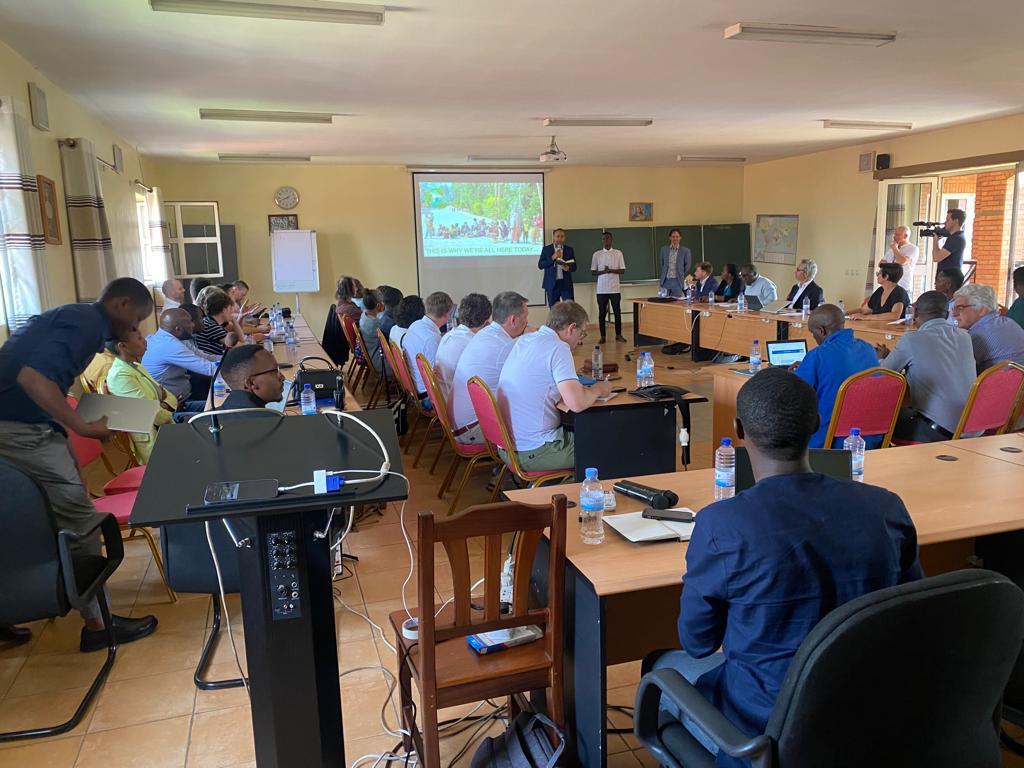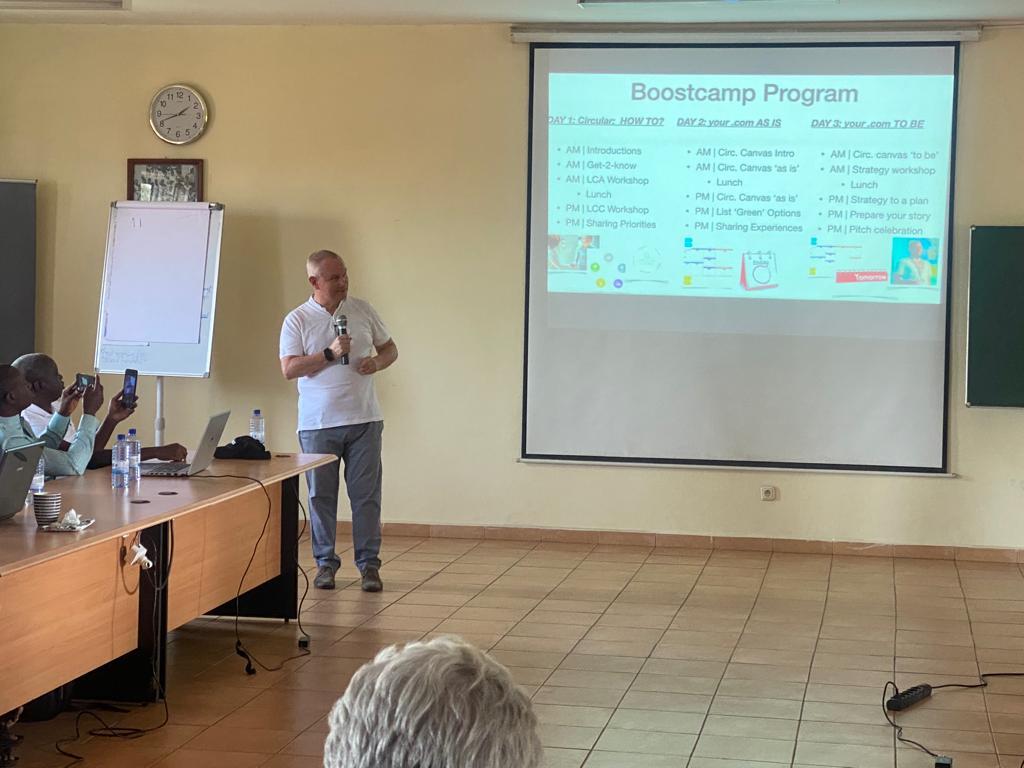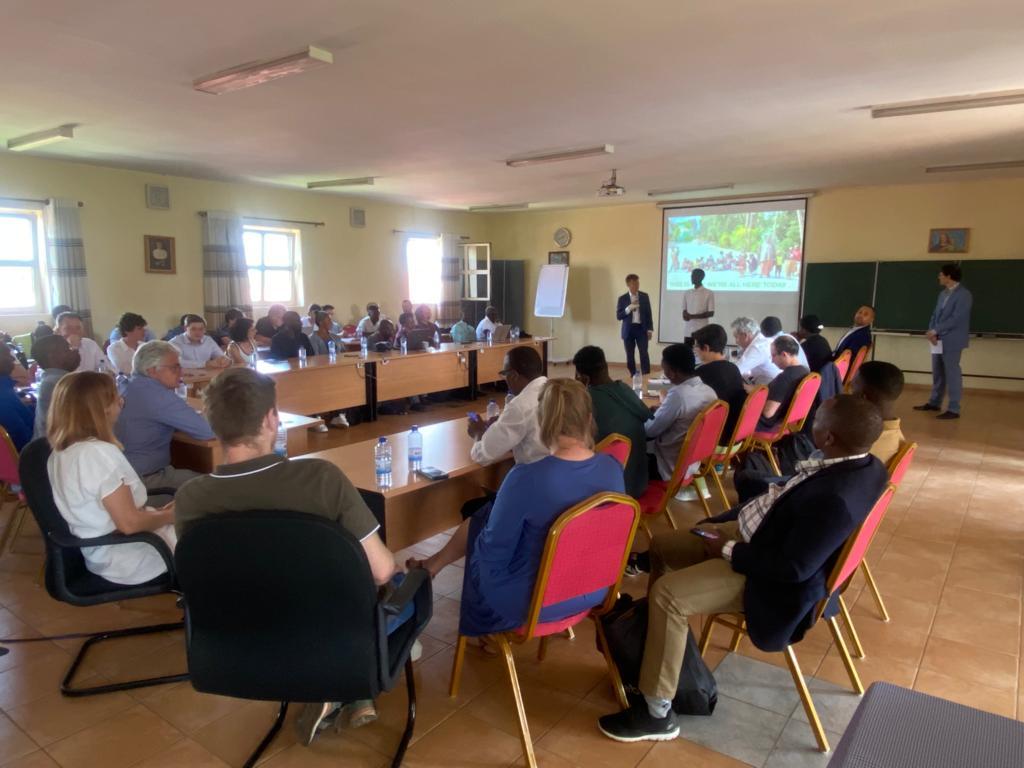Rwanda’s potential to lead the Circular Economy transition in Africa
Many African countries, including
Rwanda, face a growing waste management challenge due to economic growth,
increasing population and rising urbanisation. According to Rwanda National circular economy - Action plan and roadmap by
the Ministry of Environment (MOE) and UNDP, in Rwanda, solid waste generation is expected
to rise by 14% increase between 2020 and 2035.
Efforts, especially related to
plastics, have brought great success and resulted in Rwanda having the
reputation of being the cleanest African country. While the waste sector is an
important sector to enable the circular economy, besides solving pressing waste
challenges, the concept also provides various opportunities to transform other
economically relevant sectors while generating jobs, offering a more
sustainable and interdependent economy and reducing greenhouse gas emissions.
Rwanda is one of the African countries
that is relatively advanced on its circular economy journey. For over a decade,
it has taken a proactive approach and put environment and climate change at the
heart of all the country’s policies, programmes and plans as seen by its Vision
2020 initiative which aimed to integrate green growth and climate resilience
strategies. Rwanda had a pioneering role in the co-founding of the African
Circular Economy Alliance first launched at the World Economic Forum in Kigali
in 2016. It also has a track record of being a test location for trialing
innovative approaches before launching in other parts of Africa, as
demonstrated by drone and smart city initiatives.
From 8-10 March 2023, Enabel’s Urban Economic Development initiative (UEDI) and the
National Industrial Research and Development Agency (NIRDA) in collaboration
with the Ministry of Environment (MOE), VITO&OVO and other partners
organized a 3-day boost camp to train and coach 10 selected local construction
companies on circular economy approaches in construction sector in Rwanda under
incubation. It was also an occasion for students from universities to share experiences
among themselves and fetch relevant skills from the coaches.
Robin Thiers 1st secretary
in development embassy Belgium said 'Rwanda Population in cities is increasing
with high construction boom in urban area. We are proud to work with Rwandan
government to promote urban planning and sustainable organization as one of the
main pillars of Belgian Cooperation'.
‘The
project is about much more than circularity alone' said Dirk Deprez, Resident Representative of Enabel in Rwanda. 'With this, we want to
contribute to Rwanda's urbanisation ambitions and the creation of jobs in a
green and circular economy' he noted.
'Applying circular principles to buildings means looking at
the full life cycle of a building, including its design, construction and
deconstruction and the materials used. Promoting circularity in
construction offers many opportunities including increasing employment,
reducing transportations costs and emissions, thus reducing pressure on our
natural resources' stated Christian TWAHIRWA, Head of Knowledge Management and Operational Monitoring at NIRDA.
Participants to the boost camp affirm they expected much from
the programme: 'We were very keen to participate in this circular economy
project, this will allow us
to further expand our network and we can also get more access to finance.' said
Eric Nshimiyimana, RCGF Managing Director.
“Our activities are environmentally friendly
we use only wood cuttings, maize leftover no single tree used to burn bricks.
Carbon emission reduces from 90-98%, the broken bricks are then recycled to
make roofing” said Immaculée MUKAMUSONI Managing Director, Kigali Bricks ltd.
As part of wider initiatives by
Enabel, VITO has lots of experiences in projects around circular economy and
specifically around circular construction. VITO and OVO delegation aimed at ensuring
exchange learning of entrepreneurs between Belgium and Rwanda, to establish
guidelines to promote circularity.
Laatste nieuws van dit project
Geen nieuws



